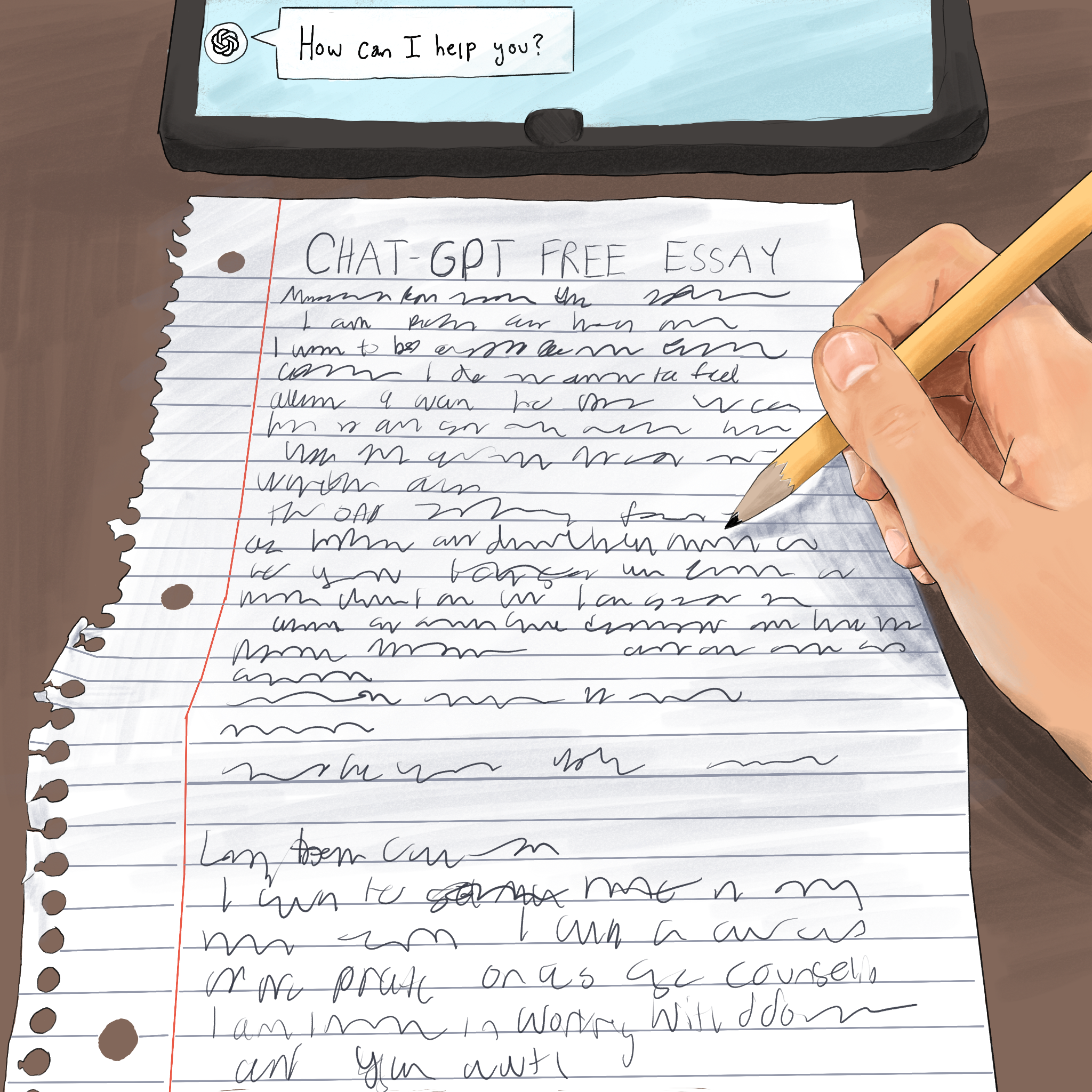Is AI Making College Harder?
Illustration by Noelle Mitcham
Article by Madeline Teeter
NEWBERG, Ore. – Last year, my professors spoke of AI briefly, usually telling students not to use it unless stated otherwise. This year, however, I am far more aware of its effects on my classes, especially Honors, as the program now requires us to write all assignments by hand in class to avoid AI use.
AI is a valuable tool for some majors, but as an English major and Art minor, I am involved in the programs with perhaps the greatest antagonism towards AI.
Three of my four classes this semester have discussed AI in greater depth than my classes the previous year. For example, in Art History we had a class discussion on how AI can be used academically and watched a George Fox Digital video to better understand the topic.
“This is year three or four of concern over AI,” said Brooks Lampe, associate professor of Language and Literature and Honors Teaching Fellow. “This is the year of going on offense.”
Lampe said the first reaction many professors had to AI was denial that it needed to be addressed. Now it is clear AI cannot be ignored. Avoiding AI, along with a desire to use traditional assignments, prompted the Honors program’s switch to analog writing.
“To have [students] write analog is one way to know they’re doing their own writing,” said Lampe. Full length essays must now be written in an hour during class, though students are encouraged to prepare an outline beforehand.
When my Honors class was told about this change, students panicked over the new system. I myself was not pleased, as I would not have as much time to carefully craft my words, not to mention my handwriting can be difficult for others to read. This change made me bitter towards AI, not the professors, as I knew the situation was not ideal for them either.
Two hours before the first in-class essay, I received 127 anxious texts from my peers about this new format. When I walked into class to write, my heart pounded from the stress, like stepping into an exam rather than sitting down to write an essay.
Once it was over, however, I realized that this new method was not necessarily bad, it just takes getting used to. Writing in class saves time for students. I spent hours writing essays over weekends, but wrote my essay in a single hour with this format.
While the essays may not be as polished, they sound more genuine than a revised paper. “Right now, there’s a new rule: don’t sound like AI,” Lampe said. “The value of the human voice has gone up.”
Previously, essays were supposed to be detached and impersonal. Now, professors want to hear a student’s voice. “What is the learning outcome in a world of AI?” asked Lampe. “I want students to be able to trust in their own writing abilities.”
There may be growing pains right now, but perhaps it is not all bad. An appreciation for unique voices could be a good change. As AI reshapes what is considered acceptable in academics, students and professors will navigate the changing climate together.

